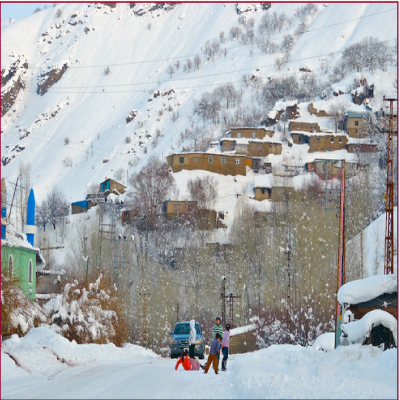

The Center for Middle Eastern Studies and the Center for Educational Resources in Culture, Language and Literacy at the University of Arizona have been awarded grants from the U.S. Department of Education for four years of funding, totaling more than $2.5 million. The grants establish the UA as a leader in foreign language instruction and Middle Eastern studies.
According to the U.S. Department of Education website, the grants are designed to “strengthen the capacity and performance of American education in foreign languages, international and area studies, teacher preparation, and international business education.” They are funded under five programs authorized by Title VI of the Higher Education Act of 1965. The UA received grants under three of the five programs.
CMES, which is housed in the College of Social and Behavioral Sciences, was named a Title VI National Resource Center, or NRC. These centers are funded to provide research and instruction in foreign languages and international studies, as well as outreach to secondary and elementary schools and to the wider community. CMES also received funds for Foreign Language and Area Studies, or FLAS, fellowships.
CERCLL, housed in the College of Humanities, was named a Title VI Language Resource Center. These centers are funded to develop resources for the teaching and learning of foreign languages at K-16 levels across the U.S. and to promote the learning of languages that are less commonly taught.
Center for Middle Eastern Studies
The UA’s Center for Middle Eastern Studies is one of 15 Middle East centers nationally to receive NRC funding and one of 13 to receive FLAS fellowship support in the new grant cycle. The UA has had a National Resource Center in Middle East studies since 1975, making it one of the longest consistently funded NRCs in Middle East studies in the country.
NRC funds support the mission of CMES to develop Middle East programs across the UA campus, train students in Middle Eastern languages, and provide outreach to K-12 schools and the community.
The FLAS funds will allow CMES to award 11 academic-year awards to students during each of the four years, and to support intensive language study for at least five students each summer. UA undergraduate and graduate students in any discipline who study Arabic, Hebrew, Persian or Turkish can receive FLAS awards. Students also may petition to use the awards to study additional Middle Eastern languages, such as Berber and Kurdish.
The Center for Educational Resources in Culture, Language and Literary was established in 2006, CERCLL is a collaborative effort among programs, departments and colleges at the UA and other institutions in the Southwest and beyond. Projects are led by UA faculty in the Colleges of Humanities, Social and Behavioral Sciences, and Education. Additional partners include organizations on campus working in international education, including CMES, the Office of Global Initiatives and the Confucius Institute, as well as several of the 16 other Language Resource Centers around the U.S.
In the new grant cycle, CERCLL will work more closely with local educational institutions, including UA South and Pima Community College, to expand outreach to underserved and minority student populations.
Ten projects will be funded by the grant, including the creation of teacher manuals for developing second- language literacy through digital gaming and the development of a digital archive of authentic interactions between Chinese-language learners and their peers during study abroad.
CERCLL will continue to offer outreach activities for K-16 educators to enable them to better integrate a range of linguistic and culture perspectives into their classrooms. The center’s biennial Intercultural Competence Conference, which draws scholars and teachers from all over the world, will continue with fifth and sixth iterations in 2016 and 2018.
